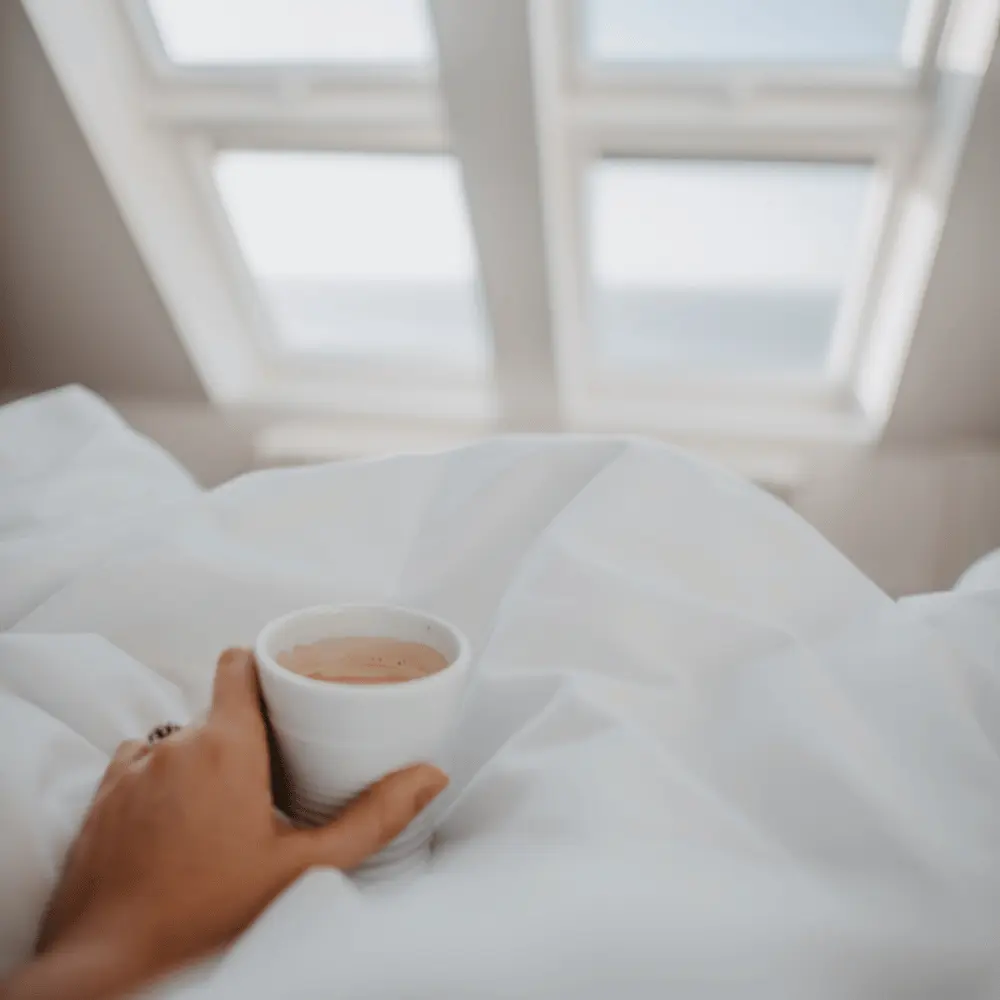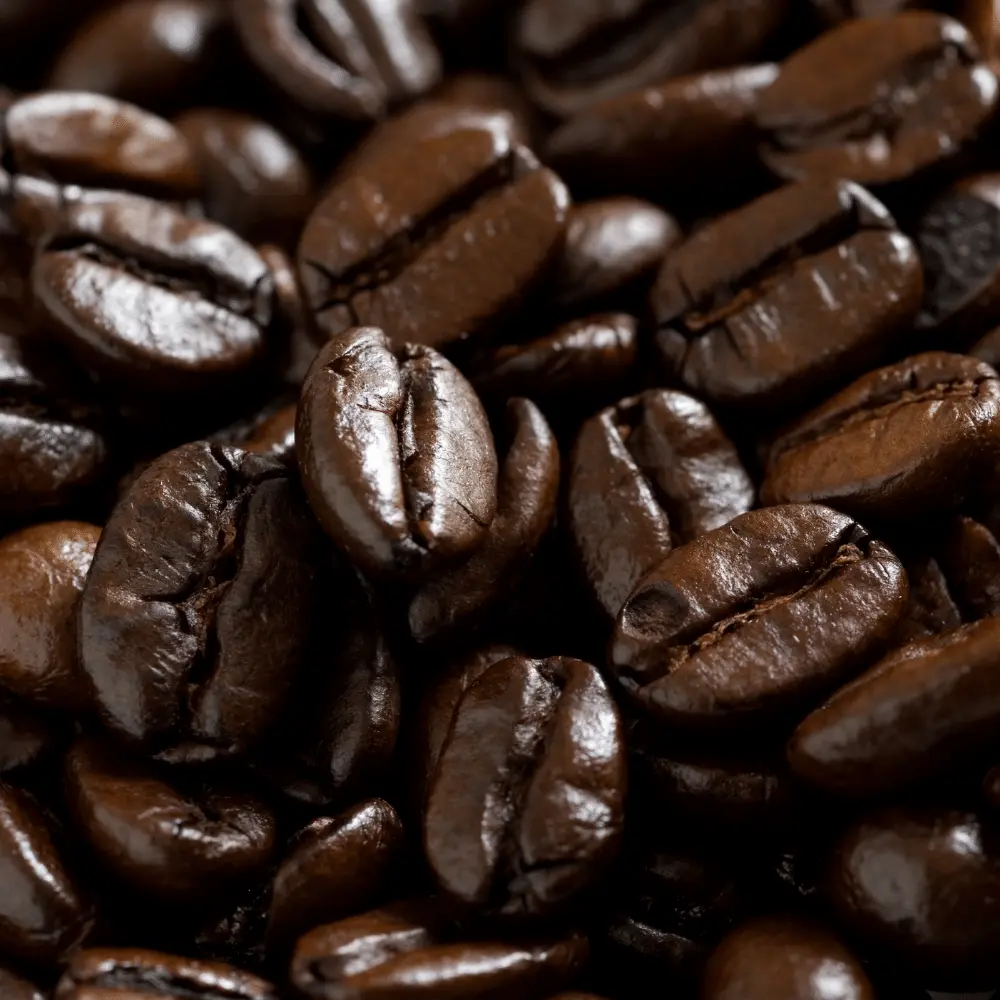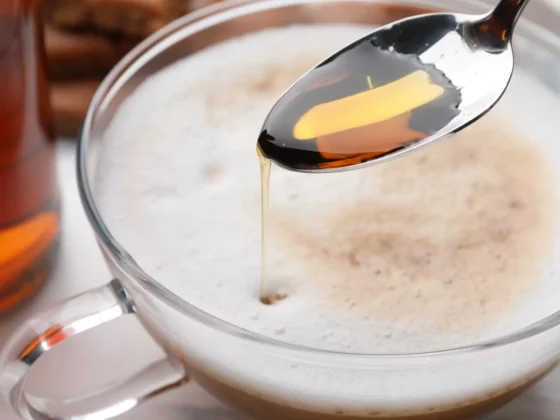When faced with a bout of sickness, many people find themselves pondering the age-old question: “Should you drink coffee when sick?” Coffee, the beloved beverage that fuels our mornings and invigorates our afternoons, is known for its stimulating effects on the mind and body. But how does it fare when our immune systems are working overtime to battle illness? In this comprehensive guide, we will delve into the effects of coffee on your health during sickness, exploring the potential benefits and drawbacks of caffeine consumption while unwell. From the science behind coffee’s interaction with the immune system to expert recommendations, this article aims to provide you with the knowledge needed to make informed decisions about your coffee habits when feeling under the weather. So, grab your favorite mug and join us as we unravel the complexities of drinking coffee when sick.
Should You Drink Coffee When Sick? – Key Takeaway
- Coffee’s effects on health during illness can vary, making it essential to consider individual tolerance, symptoms, and overall health before consuming it.
- While coffee may provide temporary energy and pain relief, its diuretic effects can contribute to dehydration, potentially hindering recovery.
- Decaf coffee can be a better option for some individuals, especially if they are sensitive to caffeine or experiencing sleep disturbances.
- Alternatives to coffee, such as herbal teas, can offer hydration and soothing benefits, making them a preferable choice for certain conditions.
- Consult a healthcare professional if you have concerns about coffee consumption during illness, or need personalized advice on managing your health and well-being.
The Science Behind Coffee and Its Effects on the Immune System
The intricate interplay between coffee and the immune system warrants a closer examination to shed light on whether coffee should be consumed during sickness. This section delves into the multifaceted role of caffeine in the immune response, the presence of antioxidants in coffee, and the influence of coffee on inflammation and recuperation.
Caffeine’s Role in the Body’s Immune Response
Caffeine, a primary psychoactive stimulant found in coffee, yields a significant impact on the immune response of the body. Scientific studies reveal that moderate caffeine consumption can augment the functioning of the immune system by boosting alertness and enhancing reaction times. However, excessive caffeine intake can lead to deleterious effects such as upregulated levels of stress hormones and weakened immune responses. (1)

Under stressful conditions, the body produces cortisol, a hormone that suppresses the immune system. Excessive caffeine consumption has been associated with heightened cortisol levels, which can undermine the body’s capacity to combat infections. (2) As a result, it is pivotal to maintain a balance in caffeine intake, particularly when suffering from an ailment, to prevent compromising the immune system.
Antioxidants in Coffee: Boosting Your Defenses
Coffee is a natural source of abundant antioxidants, playing a pivotal role in shielding the body from the harmful effects of free radicals. Free radicals are unstable molecules that inflict damage on cells, culminating in various illnesses. Antioxidants help neutralize these free radicals, fostering overall health and wellness.
Polyphenols, a group of antioxidants present in coffee, has been proven to possess anti-inflammatory properties and bolster the immune system. Among the various types of polyphenols found in coffee, chlorogenic acid has been linked to reducing inflammation and enhancing immune function. Moderate coffee consumption can, therefore, harness these antioxidant benefits, bestowing a valuable boost to the immune system. (3)
The Influence of Coffee on Inflammation and Recovery
Inflammation is a natural response of the body to injury or infection, constituting an integral part of the healing process. However, prolonged inflammation can be injurious to health and contribute to various diseases. Coffee’s influence on inflammation is complex, as it can both promote and alleviate inflammation, contingent on the individual and the situation.
On the one hand, coffee’s antioxidant properties can mitigate inflammation and facilitate recovery. On the other hand, excessive caffeine intake can trigger inflammation, particularly in those susceptible to its effects. Hence, it is imperative to exercise caution and regulate coffee consumption during illness to avert exacerbating inflammation and prolong the recovery process. (4)
Potential Benefits of Drinking Coffee When Sick
Despite some potential drawbacks, there are several reasons why drinking coffee might be beneficial when you’re sick. In this section, we will explore how coffee can stimulate the central nervous system, provide pain relief, and boost mood and energy levels during illness.

Stimulating the Central Nervous System
Caffeine, the highly prevalent substance found in coffee, is recognized as a predominant active compound that effectively stimulates the central nervous system. The mechanism of action of caffeine involves the impediment of adenosine activity, a neurotransmitter that substantially promotes sleep and relaxation. The inhibition of adenosine by caffeine results in the amplification of cognitive function, alertness, and focus. (5)
When you’re feeling sick, this stimulation can help you stay more alert and better able to perform daily tasks, despite battling illness. However, it’s essential to strike a balance; excessive caffeine consumption can lead to increased stress and anxiety, which may be counterproductive to the recovery process.
The Impact of Coffee on Pain Relief
Coffee is known to have mild analgesic properties, which could be useful for individuals experiencing pain or discomfort while ill. The active ingredient in coffee, caffeine, is believed to increase the effectiveness of common painkillers like acetaminophen and aspirin by augmenting their absorption rate and potency. (6)

When moderate coffee consumption is combined with over-the-counter painkillers like Aspirin, it could help relieve symptoms such as headaches, muscle aches, and joint pain. Nevertheless, it is critical to seek advice from a healthcare professional before combining caffeine with any medications, as there could be potential interactions or side effects to be aware of. (7)
Uplifting Your Mood and Energizing Your Body
Sickness can trigger feelings of exhaustion and emotional depletion. The stimulating effects of coffee can help counteract these sensations by providing a transient boost in energy and mood.

Besides enhancing mood, coffee can also fight fatigue and increase energy levels, enabling you to remain active and engaged in daily activities while being sick. However, it is vital to remember that coffee is not a substitute for proper rest and recovery. An inclusive approach that includes sufficient sleep and self-care is critical for a swift recovery.
Potential Drawbacks of Consuming Coffee When Sick
While there are potential benefits to drinking coffee when sick, it is important to consider the potential drawbacks as well. In this section, we will discuss the risks of dehydration associated with coffee consumption, the disruption of sleep patterns during recovery, and possible interactions with medications and supplements.
Dehydration and Coffee: A Risky Combination
One of the primary concerns with consuming coffee when sick is its potential to contribute to dehydration. Caffeine has diuretic effects, which means it can increase urine production and promote fluid loss. Dehydration can hinder the body’s ability to recover from illness, as it can exacerbate symptoms like fever, congestion, and fatigue. (8)

When you’re feeling unwell, it’s essential to prioritize hydration. If you choose to drink coffee, be sure to consume additional water and other hydrating beverages, such as herbal tea or electrolyte-infused drinks, to counteract the diuretic effects of caffeine and maintain proper hydration levels.
Disrupting Sleep Patterns During Recovery
A crucial factor in recovering from illness is getting adequate restorative sleep. Caffeine’s stimulating effects can negatively impact sleep quality and duration, making it harder for the body to heal and recover. By disrupting the sleep-wake cycle, the caffeine in coffee can prolong the recovery process and exacerbate symptoms of fatigue and weakness.

To avoid sleep disturbances, consider limiting your coffee intake, particularly in the afternoon and evening. Alternatively, you may choose to switch to decaffeinated coffee or other non-caffeinated beverages when you’re sick to ensure that your sleep patterns remain undisturbed.
Interactions with Medications and Supplements
Another potential drawback of consuming coffee when sick is the possibility of interactions with medications and supplements. Caffeine can interfere with the absorption or effectiveness of certain medications, such as antibiotics, pain relievers, and some cold and flu medications. Additionally, some medications can affect how the body metabolizes caffeine, potentially leading to increased side effects or decreased effectiveness. (9)

Before consuming coffee while taking medications or supplements, consult with a healthcare professional to ensure there are no contraindications or potential interactions. By doing so, you can optimize your recovery process and minimize any risks associated with coffee consumption during illness.
Alternatives to Coffee During Illness
When considering whether drinking coffee when sick is the best choice for you, it’s important to explore other options that may better support your recovery. In this section, we will discuss alternatives to coffee, such as herbal teas, natural remedies for energy and immune support, and the importance of a balanced diet and proper rest during illness.
Herbal Teas for Hydration and Soothing Benefits
Herbal teas can be a great alternative to coffee when you’re feeling unwell. Not only do they provide hydration, but many herbal teas also offer soothing and therapeutic benefits. For example, chamomile tea is known for its calming effects and can help promote relaxation and sleep, while ginger tea may help alleviate nausea and indigestion. Peppermint tea can soothe an upset stomach, and teas containing echinacea or elderberry may help boost the immune system. (10), (11)

By choosing a herbal tea that addresses your specific symptoms, you can enjoy a comforting and hydrating beverage without the stimulating effects of caffeine, which may be more conducive to recovery.
Natural Remedies for Energy and Immune Support
If you’re looking for natural ways to boost your energy and immune function without drinking coffee when sick, there are several alternatives to consider. For example, you might try incorporating foods rich in vitamin C, such as citrus fruits and bell peppers, into your diet to support immune health. Additionally, consuming foods high in B vitamins, like whole grains and lean proteins, can help maintain energy levels.

Supplements like ginseng or ashwagandha are known for their adaptogenic properties, which may help improve energy and resilience during times of stress or illness. (12) However, it is essential to consult with a healthcare professional before starting any new supplement regimen, especially if you are taking medications or have pre-existing health conditions.
The Importance of a Balanced Diet and Proper Rest
During illness, prioritizing a balanced diet and proper rest is crucial for recovery. Eating a variety of nutrient-dense foods, such as fruits, vegetables, lean proteins, and whole grains, can provide the necessary nutrients for your body to heal and regain strength. Drinking plenty of water and staying well-hydrated can also aid in the recovery process.

Equally important is getting enough restorative sleep, as the body uses this time to repair and regenerate. Instead of relying on coffee to keep you going, make an effort to prioritize sleep and self-care to help your body recover more effectively from illness.
Expert Advice on Consumption of Coffee When Sick
One of the most common questions that people ask when they are feeling unwell is, “Is coffee bad when you’re sick?” There is no one-size-fits-all answer to this question, as individual responses to coffee can vary greatly. In this section, we will explore expert advice on coffee consumption when sick, including when to limit or avoid coffee intake, choosing the right coffee for your condition, and the importance of listening to your body’s signals and needs.
When to Limit or Avoid Coffee Intake
Experts generally recommend that you should pay close attention to your symptoms and overall health when deciding whether to drink coffee while sick. In some cases, it may be wise to limit or even avoid coffee intake. For example, if you are experiencing dehydration, anxiety, or sleep disturbances, it might be best to reduce your coffee consumption or switch to a decaffeinated option.
Choosing the Right Coffee for Your Condition
In the context of one’s condition, should the decision be made to partake of coffee while unwell, it is imperative to appropriately select the coffee in question. Selecting a milder and less acidic coffee could serve to diminish the likelihood of agitating the stomach or provoking acid reflux. For those sensitive to caffeine or experiencing sleep disturbances, opting for decaffeinated coffee might be a more prudent choice.

Another consideration to ponder is to modify the brewing technique employed. By employing a cold brew process, the resultant coffee produced could prove to be less acidic, and thus gentler on the stomach. Furthermore, in a bid to aid recovery, excessive amounts of sugar or creamer should be shunned as they could lead to inflammation.
Listening to Your Body’s Signals and Needs
The most critical factor to be cognizant of when managing coffee consumption whilst unwell is the ability to discern and respond to the signals and needs of one’s body. It behooves individuals to be attentive to their body’s reactions to coffee during sickness and to regulate intake accordingly. If it is noted that coffee intensifies symptoms or hinders the recovery process, it may be judicious to temporarily reduce or eliminate its consumption. Conversely, if one finds that coffee provides a sense of comfort and relief sans adverse side effects, it may be reasonable to indulge in moderation.
Conclusion
In the ultimate analysis, the question of whether you should drink coffee when sick is essentially a matter of individual predilection that is contingent upon multifarious variables, comprising the manifestation of your symptoms, your overall physical condition, and your resistance to caffeine. This all-inclusive guide has delved into the prospective merits and demerits of coffee consumption during periods of sickness, alongside expert recommendations on how to negotiate this intricate issue.
While pondering whether it is ok to drink coffee when sick, it is crucial to meticulously heed your body’s cues, ensure ample hydration, and accord top priority to convalescence and recuperation. By judiciously selecting your coffee intake and examining other alternatives when deemed necessary, you can contribute to your body’s convalescent process in the most efficacious manner possible.
Do remember that every person is distinctive and it’s always prudent to seek counsel from a healthcare professional if you hold misgivings about your coffee ingestion during periods of sickness or necessitate individualized advice on managing your health and well-being. By staying well-informed and heeding your body’s signals, you can arrive at optimal decisions for your physical well-being during times of sickness and health.
FAQ
How Does Caffeine Interact With Medications for Common Illnesses?
Caffeine can interact with various medications, potentially affecting their absorption, effectiveness, or side effects. Consult a healthcare professional before consuming coffee while taking medications to ensure there are no contraindications or potential interactions.
What Are the Best Alternatives to Coffee When You’re Feeling Under the Weather?
Herbal teas, such as chamomile, ginger, and peppermint tea, are some of the best alternatives to coffee when feeling unwell, as they provide hydration and soothing benefits. Other alternatives include water, electrolyte-infused drinks, and warm broths for hydration and nourishment.
Is Decaf Coffee a Better Choice When You’re Sick?
Decaf coffee may be a better choice for some individuals when feeling sick, particularly if they are sensitive to caffeine or experiencing sleep disturbances. However, it is still essential to prioritize hydration and be mindful of the potential diuretic effects of decaf coffee.
How Much Coffee Is Safe to Consume While Recovering From an Illness?
The safe amount of coffee to consume while recovering from an illness varies depending on the individual's tolerance to caffeine, their symptoms, and the specific illness they are dealing with. Listen to your body's signals and adjust your coffee intake accordingly. If coffee exacerbates your symptoms or interferes with your recovery, consider reducing your consumption or temporarily eliminating it. Always consult with a healthcare professional if you have concerns about your coffee consumption during illness.


















